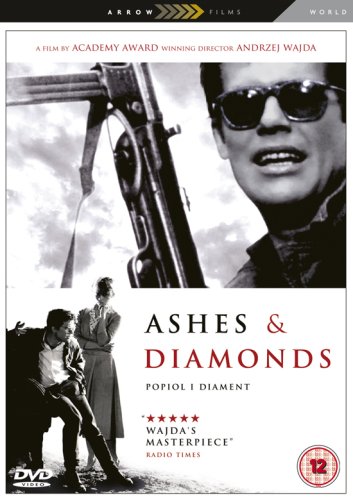A film is never really good unless the camera is an eye in the head of a poet.
If you want a happy ending, that depends, of course, on where you stop your story.
A story should have a beginning, a middle and an end, but not necessarily in that order.
You know what your problem is, it's that you haven't seen enough movies - all of life's riddles are answered in the movies.

I saw the Danish movie, A HIJACKING, the other day—and was deeply impressed. Based upon the title and the subject matter, one might expect it to be an action movie ending in a blaze of gunfire. Actually, it is really an all too believable—and involving—study of stress.
The story concerns the hijacking of a Danish ship by Somali pirates—and you follow events from the point of view of a member of the crew, the ship’s cook, and the CEO of the company that owns the ship.
All in all, it’s a deeply distressing but fascinating story—and the suspense never lets up. It conveys the toll that stress takes on the human condition with unremitting accuracy—and is all too believable. If you want light entertainment, this isn’t for you. This is the kind of movie that is more likely to give you P.T.S.D.
The movie was made for $2.8 million—a virtual rounding error by Hollywood standards.
I love movies. I grew up in a television-free household so they had an extra significance as far as I was concerned—and, when I was a young child, they were certainly much more enjoyable than real life.
Given my decidedly difficult and unhappy upbringing, that wasn’t hard. I was abused physically, and in other ways, when I was at home—by my mother—and bullied physically, and in other ways, when at boarding school (where she sent me at the age of 5 after I refused to kiss her—my way of fighting back). Pain apart, it grew tedious. It’s extremely boring to be abused and bullied.
Life grew somewhat easier after I reached the age of eleven. I grew, and learned to fight with some expertise, so I could take care of myself physically, I started to excel academically, I had left the Irish boarding school I loathed for one in England—and when I was on vacation, I was old enough to look after myself. And then I discovered girls.
Before long I discovered you could combine a movie with a girl (or even a girl with a movie). Life started to look up. And then girls became women. Better again. Sexually experienced women were best of all. I fell in love with one—twice my age—and she with me. I move in with her in the face of total social disapproval. This was Catholic Ireland in 1964/5. It was a most pleasurable educational experience.
Real life had its good points.
Movies, and then books, were my escape during my earlier years of misery—and then became integral to my life. I consumed both to excess—and try and keep up the good work—and learned a great deal from them. Steve Martin is right. All of life’s riddles are answered in the movies. And they are also answered in books.
It’s strange the way life itself provides so few answers. Mostly, real life seems to be about questions—starting with why we exist at all.
I haven’t a clue. In my satirical book, HOW EAGLE & CUCKOO SAVE AMERICA, I opine that the Chief (God, I suppose) created the world primarily so he could produce wine. Of course, he didn’t really need the world since God can do anything, but he craved the uncertainty of climate and willed himself not to know the outcome (even though he really did).
The bottom line is that I think if there is a God, we were were created for entertainment. I can think of no other rational reason (though I see scant evidence that God is rational).
That means we are the movie. And each one of us is a star.
What a creepy thought. I value my privacy.

I first became turned on to foreign language movies when I was at university. There, I belonged to the Film Society so saw a foreign language movie about once a week.
What I liked about them—some more than others—is that, generally speaking:
- They were less formulaic than Hollywood movies.
- They offered more insight into the human condition.
- They offered a window into other cultures.
- They were often more creatively directed.
- They were often better written.
They were not necessarily more entertaining—in a purely escapist sense—but they were more intelligent, more interesting.
I have no problem with sub-titles.
Personally, I would like to see a film industry that was genuinely international—where foreign language movies were shown routinely. I think it would do a great deal to foster international understanding. If you watch enough foreign movies, you soon realize that although there are profound cultural contrasts, in fundamental ways, we are not so different at all.
Though I have enjoyed many a Hollywood movie, I don’t think the dominance of the movie business by U.S. corporations for so long has done the world any favors—but then I am skeptical of excessive corporate power and monopolies generally (regardless of nationality). If the movie industry was dominated by the Serbians, I wouldn’t feel any better about it—and I have nothing against Serbs.
Will I say any more about Hollywood culture?
No, I don’t think I will—except to comment that the phrase is an oxymoron.
No comments:
Post a Comment